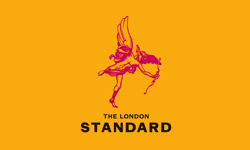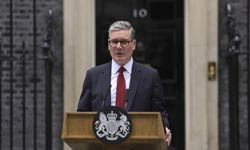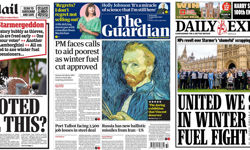As reported by the Newspaper Society: NS president Adrian Jeakings, NS director David Newell, Local World chairman David Montgomery, DC Thomson managing director Christopher Thomson, and Johnston Press chief executive Ashley Highfield appeared as witnesses at a Culture Media and Sport Select Committee hearing on press regulation on Tuesday.
Following Lord Justice Leveson’s suggestion in his report that the Government should look at what action it might take to help safeguard regional and local newspapers’ ongoing viability as an important part of the British press, the publishers outlined key areas where the Government could help the industry
These included looking at the local media merger regime, restricting the BBC’s local activities, protecting intellectual property, looking at the Government’s share of ad spend being channelled into local media, and not burdening local media with an overbearing regulatory system.
Asked by Committee chairman John Whittingdale about the state of regional and local newspapers, Mr Jeakings said the industry was in a state of transition and was investing to change its business model.
“We can see a bright future for our industry.” Mr Jeakings said. “One of the key things that we don’t need at this point however is to have a burdensome regulatory system imposed on us and the associated costs.
“Leveson exonerated us from the malpractice that led to his report in the first place indeed he said that we play key role in society, said that we shouldn’t have any additional burden and suggested that the Government should do what it could to help us.
“Some of the things that could be done to help us would include stopping council newspapers, curtailing some of the BBC’s local activities, sharing of content, allowing a more sensible, realistic if you will, media merger regime for local newspapers, and many other things.
“We are the most trusted medium in the UK and yet we don’t get what we consider to be our fair share of Government advertising so we would very much like Government to work with us and use our medium.”
Mr Highfield said: “Our overall audiences, and I think I speak for all of us, are up, ie the relevance of local media, local brands in our communities, has never been stronger but of course a substantial amount of our traffic now comes from online rather than in print and none of us have made the transition from print pounds to digital pennies, work for us yet.
“It will, we believe in that, the investors believe in that, but certainly right now and over the next couple of years we face some very real challenges, but challenges that Government can certainly help us with.”
Mr Highfield added: “I do think that the one thing that this change is bringing about for us to be extremely careful with our cost base of the business.
"If we are going to sustain plurality of voice in communities and keep journalists on the ground all other costs have got to be extremely tightly managed and that leads inevitably to conversations about consolidation within the industry because we need to be scale in order to make those cost savings, to keep journalists on the ground.”
Mr Montgomery said: “I think all of us are optimistic that we will enrich local content, we will develop more modules or channels of local content but to do that and to compete with the rest of the digital world we will have to employ different skills.”
Mr Thomson said: “I would say that the industry is steadying having done a huge amount of very painful work and we’ve actually got a very good future in print but also online. We need help.”
Asked by Tracey Crouch, Chatham and Aylesford MP, whether he believed local papers should be exempt from a new regulatory system, Mr Jeakings responded: “I think the PCC did a good job of handling complaints for the local press.
“I can see that there is now pressure to replace it with something larger. Our issue is not with whether there should be regulation or not but rather with the way that regulation is implemented and the cost base that it might impose on us.
“I think there are two potential impacts. One is purely financial in the sense that the cost of running a complex regulator will be higher than the costs that we are currently paying and estimates vary from at least twice as much to five times as much.
“The other impact I think is on our journalists’ ability to report on stories without fear of being tied up in a complex, burdensome and possibly punitive process as a result of the regulation.”
Mr Newell said the Government’s Royal Charter was: “fundamentally inflexible and directly contrary to Leveson’s view that there should be a system of independent self regulation”.
“The fear of the small publisher who gets caught up into this, who Leveson exonerated, is that they might be forced to join a regulator that they don’t believe they should have to join, to protect themselves from a system of damages and cost rules that are heavily targeted on one section of the media,” he told the committee.
“That seems a double jeopardy, a double attack, which we don’t believe that Leveson really intended.”










